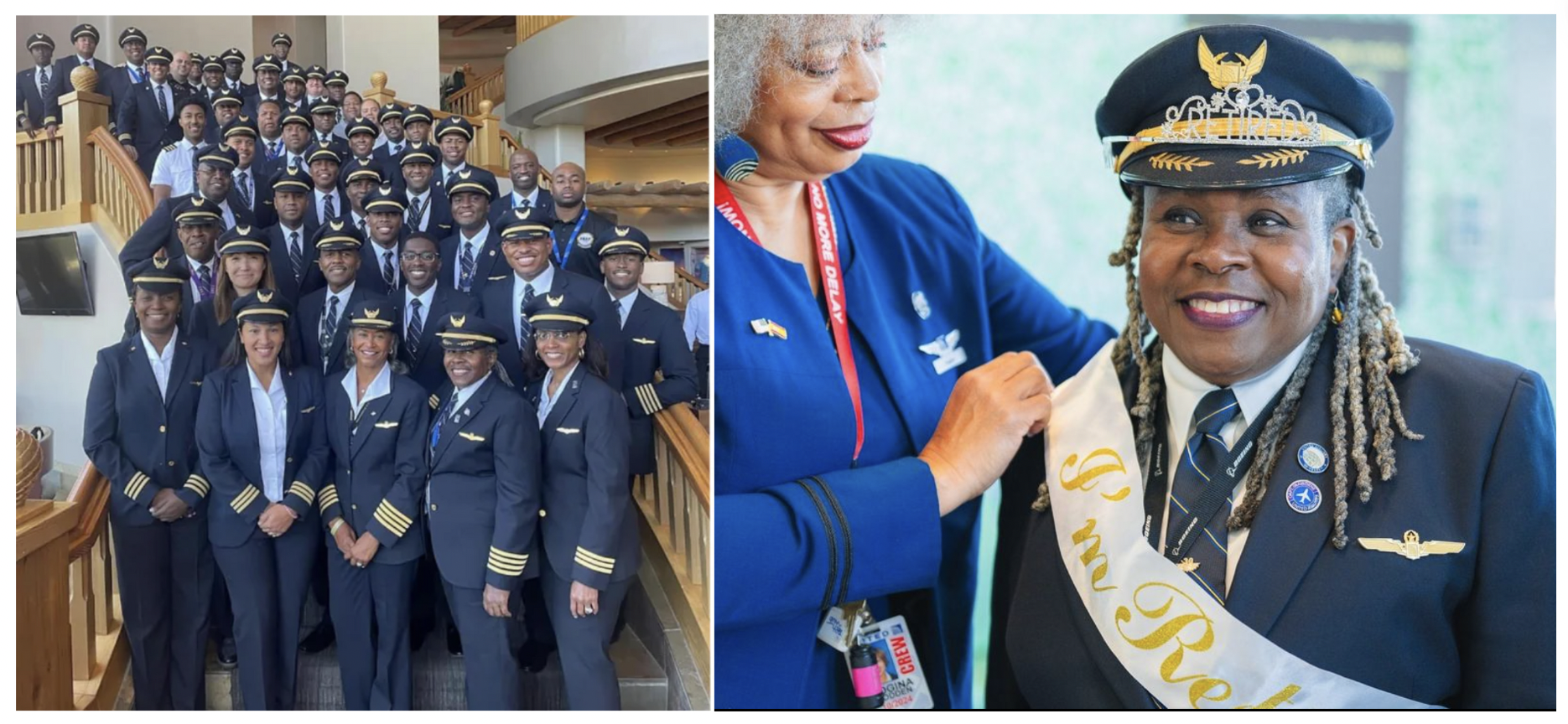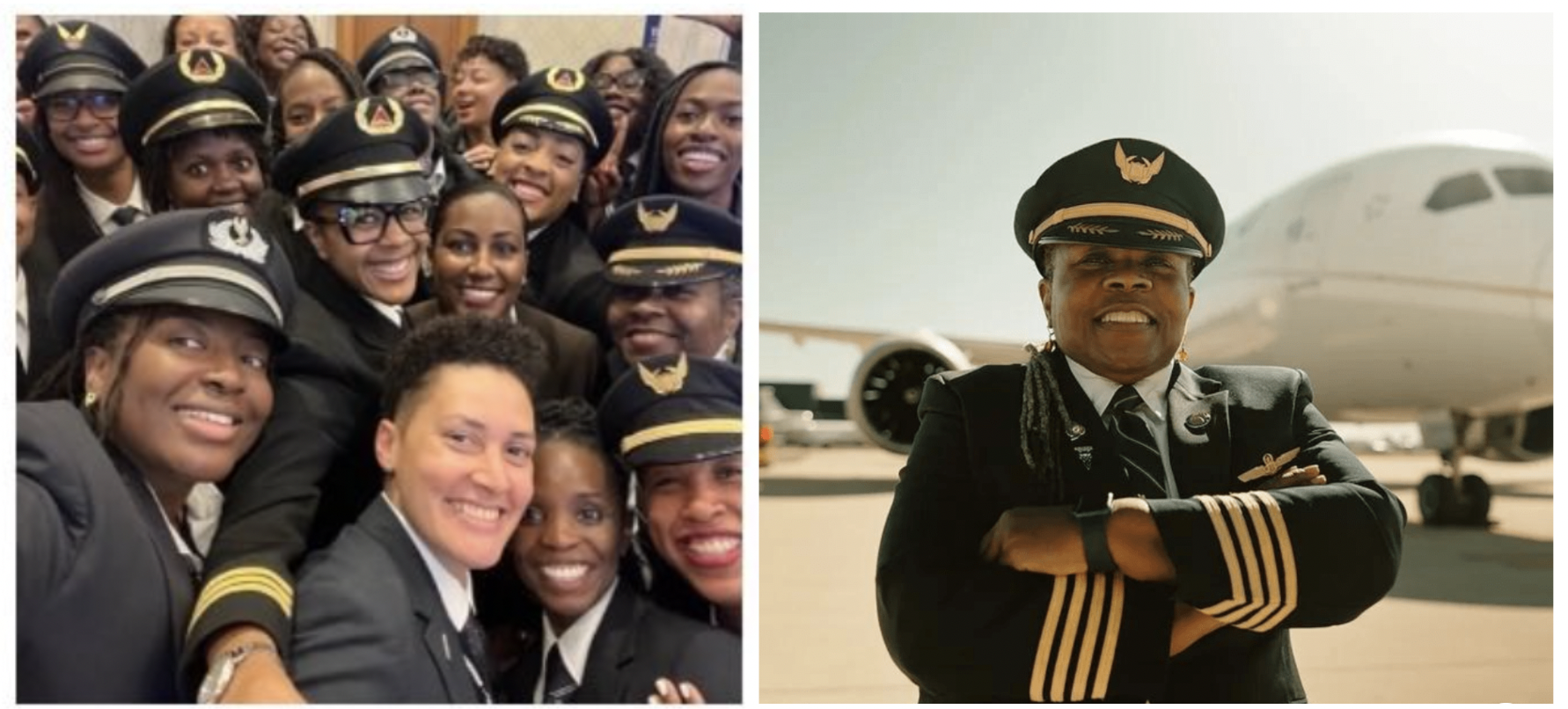The First Black Female Air Force Pilot in the U.S. Air Force is Retiring – Here’s What She Told Être Girls
Girls, this is your Captain speaking.
As we crane our necks upward this Memorial Day to see flags wave, it’s not hard to imagine Captain Theresa Claiborne – the first Black woman to fly for the U.S. Air Force and then for United Airlines – owning the skies and breaking barriers with every mile flown.
Retired as of last Thursday after piloting both military and commercial planes for 43 years, Captain Claiborne’s trailblazing career logged more than 23,000 flight hours and set an example for girls everywhere that the sky is not, in fact, the limit.
How do we know?
She told Être girls when they asked last week.
Part of a cohort of Black female pilots that represents less than one half of 1% of the total professional pilot career field, Captain Claiborne's aviation career began in 1981, when she was commissioned as a second lieutenant in the U.S. Air Force - the first Black woman pilot in the history of the Air Force. Graduating her undergraduate pilot training at Laughlin Air Force Base in 1982, she then became the first Black woman to serve as a command pilot and instructor for the KC-135 during her seven years on active duty and 13 years in the Reserves.
When Claiborne finally joined United Airlines as a flight officer in 1990, she served as a flight engineer, first officer and finally as a captain, amassing a staggering number of flight hours and admiring fans.
Was this rare? It was.
With just over 158,000 licensed pilots currently in the U.S. there are less than 150 Black female pilots holding airline transport pilot, commercial, military and/or certified flight instructor licenses.
Did this pioneering pilot take action? She did.
In addition to being a Board member of the Women Air Force Service Pilots Museum and the Grand Dames of Aviation, Captain Claiborne joined pilots Christine Angel Hughes and Nia Wordlaw in 2016 to launch Sisters of the Skies, a nonprofit organization dedicated to building and supporting a more diverse next generation of aviation professionals. Through innovative workshops, scholarships and - close to my heart - mentorship, girls and women of color are gaining unparalleled access to professional pilots and potential new career paths.
So what did Être girls want to ask this role model on Memorial Day and what did she answer?
Ê: Is there one piece of mentor advice you received in your career that you want to pass on to today's girls who want to fly?
TC: Training is the foundation of excellence. It's not just about mastering the skills but about building confidence and resilience. Through rigorous training, we prepare for every scenario, ensuring we can face any challenge with precision and composure. The sky is not the limit; it's just the beginning when you're well-trained.
“The sky is not the limit; it’s just the beginning when you’re well-trained.”
Could there be a better takeaway as this epic mentor takes off for a new and well-earned chapter?
We don’t think so.
With eyes clearly fixed on the horizon and fewer obstacles in sight thanks to barrier-breakers like Captain Claiborne who swept them away with strong wings, girls today can see big futures.
Futures as wide as the sky against which today’s flags wave.
With grateful thanks for her service and shared wisdom, girls everywhere can make her words their summer screensaver.
The sky is not the limit.
It’s just the beginning.
Thank you, Captain Claiborne - and all who have served.
Looking forward and up,
Illana
ÊXTRAS: Three ways you can keep up with Captain Claiborne as she embarks on her next journey: via her website where she tells us to "Be so good that they can't dismiss you," here on LinkedIn, and on Instagram where she recently said she plans "to spend my days inspiring young people to follow their dreams by turning them into goals, shattering glass ceilings, and defying all odds." We'll be listening. Our Captain is speaking.







